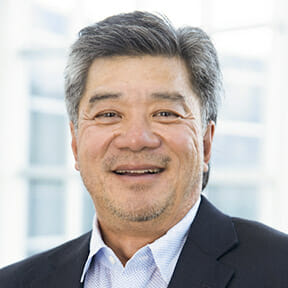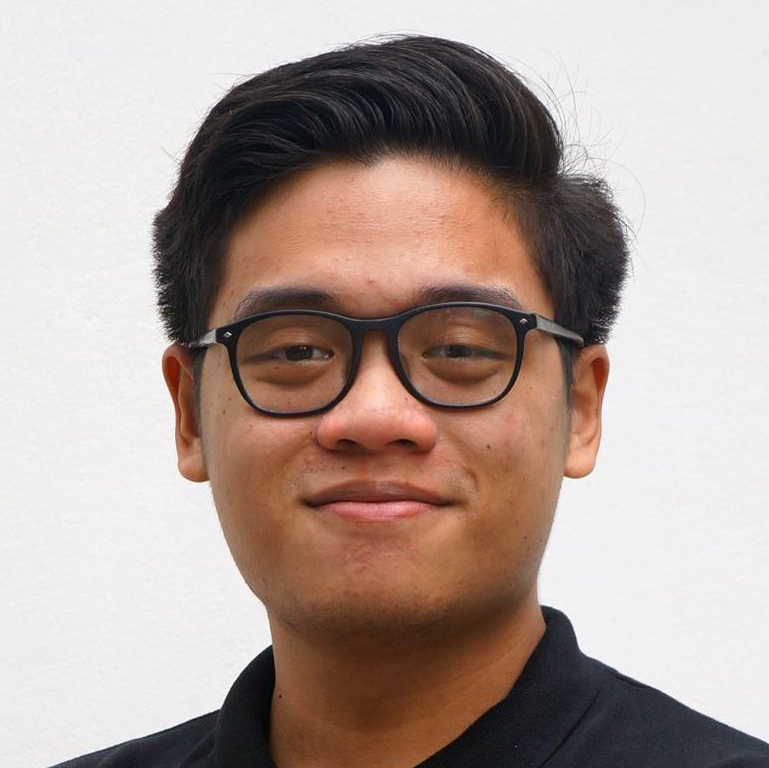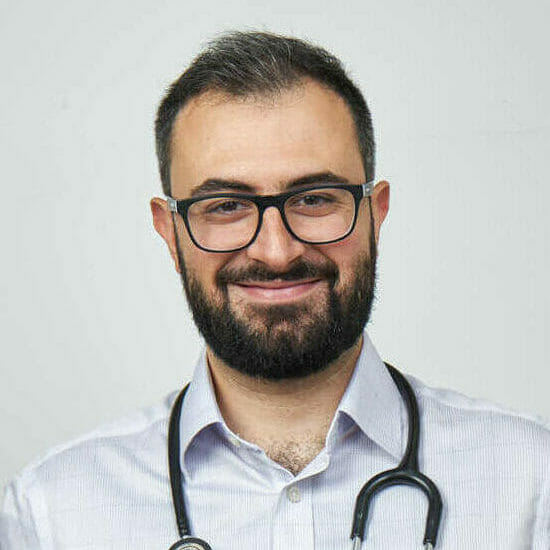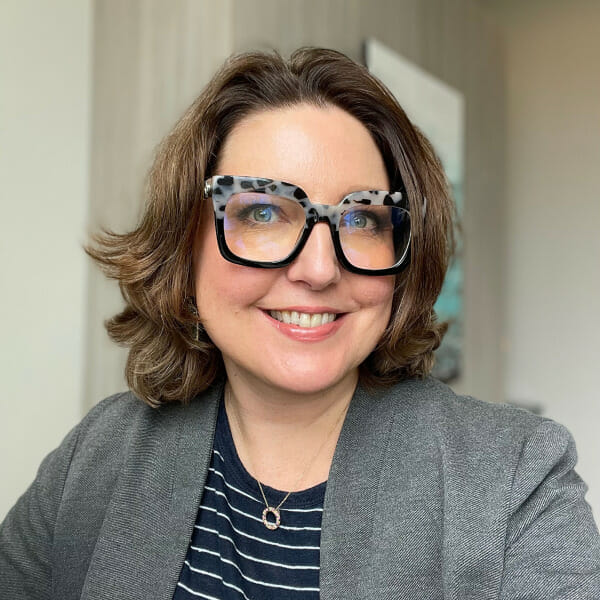Faculty Research
Advancing Research and Innovation with Lecturio
Our Directors of Nursing and Medical Education
Pedagogical research is critical to healthcare education. Together, we can harness the power of data to inform strategies for improving learning and teaching outcomes.
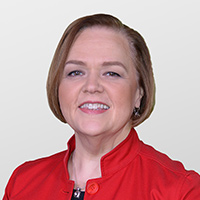
Rhonda Lawes, PhD(c), RN
- Director of Nursing Education, Lecturio
- Currently teaching in BSN program with emphasis on nursing research and advanced pathophysiology and pharmacology
- Award-winning, certified nurse educator and PhD(c) in educational psychology with over 30 years of experience as a nurse
“We now have the technology to help deliver and evaluate evidence-based learning strategies in the medical education setting in uniquely powerful ways, and we are committed to helping interested students and faculty conduct pedagogical research using these tools.”
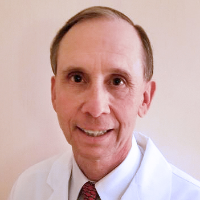
Peter Horneffer, M.D., FACS
- Director of Medical Education, Lecturio
- Executive Dean, All American Institute of Medical Sciences, Jamaica
- Cardiothoracic surgeon, Maryland, USA
“Our vision is to empower faculty to teach and lead more strategically and effectively through the application of evidence-based strategies supported by the Lecturio platform.”
“We now have the technology to help deliver and evaluate evidence-based learning strategies in the medical education setting in uniquely powerful ways, and we are committed to helping interested students and faculty conduct pedagogical research using these tools.”
“Our vision is to empower faculty to teach and lead more strategically and effectively through the application of evidence-based strategies supported by the Lecturio platform.”
Our Research Focus
Explore how our research team can support your research endeavors in health education
Our ongoing research focuses on the following topics:
- Impact of learning science on performance, well-being, and long-term mastery
- Efficacy and utility of e-learning platforms including lessons learned during the COVID-19 pandemic
- Factors contributing to improved student performance and outcomes with e-learning platforms
- Elements affecting learner motivation and academic resilience
Join Us at Upcoming Conferences
Review the latest learning science and research at a presentation or workshop
Lecturio’s Contributions
Review our presentations, workshops, and short communications
Medical
Oral Presentation
Neurodiverse Learners in Health Sciences: Benefits of a Universal Design For Learning
Neurodiverse learners in medical, nursing, and other health education may hesitate to self-identify due to lingering stigma around neurodiverse diagnoses such as attention deficit disorder and autism spectrum disorders. Although the percentage of students who self-identify as neurodiverse in health professions education is low, the actual percentage of neurodiverse learners in medical and nursing school is estimated to be higher. Educators in the health professions can help neurodiverse students succeed without requiring those students to self-identify or “out” themselves by using Universal Design for Learning (UDL) principles for their courses. In particular, online elements delivered via learning platforms offer opportunities for neurodiverse student success through UDL. An added benefit of UDL means that all students benefit from more accessible and more easily navigable courses.
Where?
IAMSE Conference, Cancun, Mexico
When?
June 10–13, 2023
Medical
Poster Presentation
Concretely Incorporating Evidence Based Learning Techniques: A proposed Worksheet for Students
Satria Nur Sya’ban, MD
Downloads:
Presentation
Where?
IAMSE Conference, Cancun, Mexico
When?
June 10–13, 2023
Medical
Poster Presentation
Adapting teaching for neurodiversity: strategies for ADHD
Rhonda Lawes, PhD(c), RN
Satria Nur Sya’ban, MD
Adonis Wazir, MD
Aikaterini Dima, MD, MSc
Download
Poster
Where?
Transform MedEd, London, UK
When?
November 11–12, 2022
Medical
Presentation
Platform-based Delivery of Medical Education: Transforming Effectiveness, Availability, and Resiliency
Presenters:
Peter Horneffer, MD
Where?
Transform MedEd, London, UK
When?
November 11–12, 2022
Medical
Workshop
A Paradigm Shift in Medical Education: Internet-based Platforms at the Core of the Educational Process AMEE 2022
Where?
AMEE 2022, Lyon, France
When?
August 27–31, 2022
Medical
Short Communication
Needs Assessment for the Professional Development of Medical Educators in a Resource Scarce Country
Atsusi “2c” Hirumi, PhD
Peter Horneffer, MD
Meredith Ratliff, M.A., M.A.T.
Robert Santiago, MA
Download
Recording
Where?
AMEE 2022, Lyon, France
When?
August 27–31, 2022
Medical
Presentation
Integrating the use of Web-based Learning Platforms to Advance Health Professions Education
Where?
AMEE 2022, Lyon, France
When?
August 27–31, 2022
Medical
Workshop
Taking Charge of Your Own Learning: Incorporating Evidence into how you Learn
Satria Nur Sya’ban, MD
Pradnya Gharini
Paramastri Arindra
Download
Presentation
Worksheet
Where?
AMEE 2022, Lyon, France
When?
August 27–31, 2022
Medical
Short Communication
Utility of an e-learning platform and its impact on medical student performance
Where?
AMEE 2022, Lyon, France
When?
August 27–31, 2022
Medical
Presentation
Implementing a Platform-Based Approach to Curricular Delivery to Optimize Knowledge Acquisition
Where?
IAMSE 2022 Denver, CO
When?
June 6–7, 2022
Medical
Presentation
Video Didactic Preparation can Augment Problem-Based Learning
Where?
Educating Leaders 2022 – the AACOM Annual Conference, Denver, CO
When?
April 27–29, 2022
Medical
Short Communication
Evaluating Students’ Acceptance of and Readiness to Adopt E-Learning Practices: Moving Forward from a Pandemic
Satria Nur Sya’ban, MD
Gladys Z. Ibrahim
Utku Timurcin
Mokshada Sharma, MBBS, MscPH
Downloads:
Presentation
Recording
Where?
AMEE 2021, Virtual Conference
When?
August 27–30, 2021
Research Publications
AERA Open
Rethinking Teaching Team-Based Learning: The Challenges and Strategies for Medical Education in a Pandemic ¹
2021
- Faculty and students had to adjust from classroom-based TBL to remote learning.
- Effective preparation was essential for successful TBL sessions. Faculty used Lecturio as part of their pre-class preparation by assigning videos with spaced repetition questions.
- Other strategies included introducing a practice session, using break out rooms for students and faculty to help facilitation, and establishing a social presence.
Authors: Yun Li, Nicholas A. Sears, Ian V. J. Murray, Kamlesh K. Yadav
Annals of Global Health
Facing COVID-19 in Liberia: Adaptations of the Resilient and Responsive Health Systems Initiative ²
2021
- The article describes the experience of the RRHS program during the Covid-19 shutdown.
- While online learning was overall successful, there were challenges with equipment, accessibility, and connectivity with synchronous sessions such as web conferencing.
- Lecturio was already in place and had institutional support which allowed faculty and students to shift successfully to remote instruction using the platform.
Authors: Regan H. Marsh, et al.
African Journal of Emergency Medicine
From the pandemic’s front lines: A social responsibility initiative to develop an international free online emergency medicine course for medical students ³
2021
- A free online course in emergency medicine was developed as a response to the Covid-19 pandemic
- As part of this initiative, Lecturio offered their emergency medicine content for free
- Collaboration between nonprofit and commercial organizations during humanitarian crises can produce meaningful projects to support medical education in a short time
Authors: Arif Alper Cevik, Elif Dilek Cakal, James Kwan
Virtual Technologies in Medicine
The Importance of E-learning on the LECTURIO Platform in Mastering the Methodology for Examining Patients with Cardiovascular Diseases by Students of RUDN University ⁴
2021
- The study determines the effectiveness of using Lecturio to train students in examining patients with cardiovascular diseases
- Lecturio is an effective tool to augment learning but cannot fully replace patient interactions
Authors: Tania R.V., Nikitin I.S., Kostsova N.G., Tigay Zh.G.
Journal of Learning for Development
Teaching and learning experiences in medical education during the COVID-19 Pandemic: The Case of Kilimanjaro Christian Medical University College (KCMUCo), Tanzania ⁵
2020
- During the pandemic, students used Lecturio 13% more than pre-pandemic (32.3 to 45.3%)
- Students rated Lecturio favorably on ease of use, second only to their learning management system, Leo.
Authors: Glory Ibrahim, Heavenlight Luzinge and Gibson Kapanda
European Spine Journal
Postgraduate education in spine surgery: the blended online learning concept ⁶
2018
- Describes Lecturio as a content provider, describing benefits of flexible learning and efficient time management for learning with standardized, comprehensive, and updated knowledge
- The author cites a need for similar resources in graduate medical education and describes current efforts to create high quality e-learning opportunities for spine surgery.
Authors: Robert Gunzburg, Marek Szpalski & Claudio Lamartina
Proceedings of the 12th International Conference On Virtual Learning
New E-learning Platforms and Projects to Re-shape Modern On-line Education ⁷
2017
- E-learning utilities are categorized in terms of Education Models & Methodologies, Education Technologies, and Education Domains & Audience.
- Lecturio is categorized as a “High-Level Digital Content Project” and summarizes Lecturio’s features
Authors: Eugen Zaharescu , Atena Georgeta Zaharescu
- Marsh RH, Plyler C, Miller M, Klar R, Adeiza M, Wachekwa I, et al. Facing COVID-19 in Liberia: Adaptations of the Resilient and Responsive Health Systems Initiative. Ann Glob Health [Internet]. [cited 2023 Apr 10];87(1):101. Available from: https://www.ncbi.nlm.nih.gov/pmc/articles/PMC8499715/
- Li Y, Sears NA, Murray IVJ, Yadav KK. Rethinking Teaching Team-Based Learning: The Challenges and Strategies for Medical Education in a Pandemic. AERA Open [Internet]. 2021 Jan 1 [cited 2023 Apr 10];7:23328584211067210. Available from: https://doi.org/10.1177/23328584211067207
- Petrovic L, Stojanović D, Labus A, Bogdanović Z, Despotović-Zrakić M. New E-learning Platforms and Projects to Re-shape Modern On-line Education. In 2017. Available from:https://www.researchgate.net/profile/Danijela-Stojanovic-2/publication/353638201_Harnessing_Edutainment_in_Higher_Education_an_Example_of_an_IoT_Based_Game/links/6107d5591ca20f6f86f2ceda/ Harnessing-Edutainment-in-Higher-Education-an-Example-of-an-IoT-Based-Game.pdf#page=242
- Tania RV, Nikitin IS, Kostsova NG, Tigay ZhG. The Importance of E-learning on the LECTURIO Platform in Mastering the Methodology for Examining Patients with Cardiovascular Diseases by Students of RUDN University. VIRTUAL Technol Med [Internet]. 2021;3(29):149–50. Available from: https://www.medsim.ru/jour/article/viewFile/1349/996
- Cevik AA, Cakal ED, Kwan J. From the pandemic’s front lines: A social responsibility initiative to develop an international free online emergency medicine course for medical students. Afr J Emerg Med [Internet]. 2021 Mar 1 [cited 2023 Apr 10];11(1):1–2. Available from: https://www.sciencedirect.com/science/article/pii/S2211419X2030135X
- Gunzburg R, Szpalski M, Lamartina C. Postgraduate education in spine surgery: the blended online learning concept. Eur Spine J [Internet]. 2018 Sep 1 [cited 2023 Apr 10];27(9):2059–61. Available from: https://doi.org/10.1007/s00586-018-5715-9
- Ibrahim G, Luzinge H, Kapanda G. Teaching and learning experiences in medical education during the COVID-19 pandemic: The case of Kilimanjaro Christian Medical University College (KCMUCo), Tanzania. J Learn Dev [Internet]. 2020;7(4):433–46. Available from: https://jl4d.org/index.php/ejl4d/article/download/448/543?inline=1
Contribute to Pedagogical Research
Join us as a research partner to assess the impact of learning science on learning outcomes, performance, confidence, and long-term mastery
Learn how Lecturio can support your institution’s goals
About the Presenters
Subtitle required
Dr. Rhonda Lawes is a distinguished nursing professional and Chief Nursing Officer at Lecturio. She holds a PhD in Educational Psychology from Oklahoma City University, with a focus on academic resilience, self-efficacy, and mindset research. In tandem with her role at Lecturio, Dr. Lawes is also an Adjunct Professor at Oral Roberts University.
With almost two decades of full-time teaching experience, Dr. Lawes’ expertise covers a breadth of nursing disciplines, including pathophysiology, nursing research, and NCLEX preparation. She has personally guided over 6,000 nursing students to NCLEX success and provides free tutoring to those in need.
An accomplished speaker and published author, Dr. Lawes is a recognized thought leader within nursing education.
Satria Nur Sya’ban is a doctor from Indonesia who graduated from Universitas Airlangga. While a student, he served as the president of CIMSA, a national medical student NGO, working on a diverse range of issues that included medical education and curriculum advocacy by medical students. Before graduating, he took two gap years to serve as a Regional Director, and subsequently as Vice-President, of the International Federation of Medical Students’ Associations (IFMSA)*, working on and developing various initiatives to better empower medical student organizations to make a change at the national level. At Lecturio, he serves as a Medical Education Consultant, supporting Lecturio in developing and maintaining partnerships with student organizations and universities in Asia, as well as providing counsel on how Lecturio can fit in existing teaching models and benefit students’ learning experience.
Adonis is a doctor from Lebanon who graduated from the University of Balamand. He was a research fellow at the Department of Emergency Medicine at the American University of Beirut Medical Center and has worked with the World Health Organization Regional Office of the Eastern Mediterranean. During his studies, Adonis served as the president of the Lebanese Medical Students’ International Committee (LeMSIC), a national medical student organization in Lebanon, and moved on to serve as the Regional Director of the Eastern Mediterranean Region of the IFMSA*. Among his roles as Regional Director, he focused on medical education advocacy, oversaw collaborations with external partners, and undertook several medical education projects and initiatives around the region. As a Medical Education Consultant at Lecturio, he advises the Lecturio team on how the platform can fit in existing teaching models and benefit students’ learning experience, develops and maintains partnerships with student organizations and universities in the MENA region, and conducts research on learning science and evidence-based strategies.
Meredith Ratliff is a doctoral student in Instructional Design and Technology at the University of Central Florida. Her research interests include evidence-based medical education, branching scenarios, and faculty development. She has received her B.S. and M.A.T. in Mathematics at the University of Florida and her MA in Instructional Design and Technology from UCF. She has been an Associate Faculty member in the mathematics department at Valencia College in Kissimmee, Florida for the past nine years. As part of the Learning Science team at Lecturio, she serves as an educational consultant helping to design and develop materials for medical educators.
Gladys is a medical student at the University of Ibadan. She is Chairperson of the Medical Students Association (UIMSA) Committee on Curriculum Assessment, Research and Development (COM/CARD), a team of Medical Education advocates that are responsible for reviewing the content and implementation of the medical school curriculum towards curriculum improvement. She is Founder and Team Lead of Medics2Labs, an organization that provides opportunities for medical students pivoting into biomedical research. Since working with Lecturio, she has worked on increasing its visibility in Africa by promoting partnerships with student organizations and universities. She has also represented Lecturio at medical education conferences and has been a speaker at learning science webinars.
Sara Keeth is a Ph.D. and certified PMP (Project Management Professional) who graduated from the University of Texas at Dallas. As an educator, she has worked as a Teaching Fellow at the University of Texas at Dallas, as a full-time professor at Richland College (now Dallas College’s Richland Campus), and has also taught at Austin College. Dr. Keeth has also worked as a consultant for Parker University’s Research Center and has a decade of experience as an operations manager for an advertising agency. As Senior Learning Science and Research Project Manager at Lecturio, she manages the Learning Science department’s activities, shares her education expertise and best practices for medical educators, and develops evidence-based content for both students and faculty.
